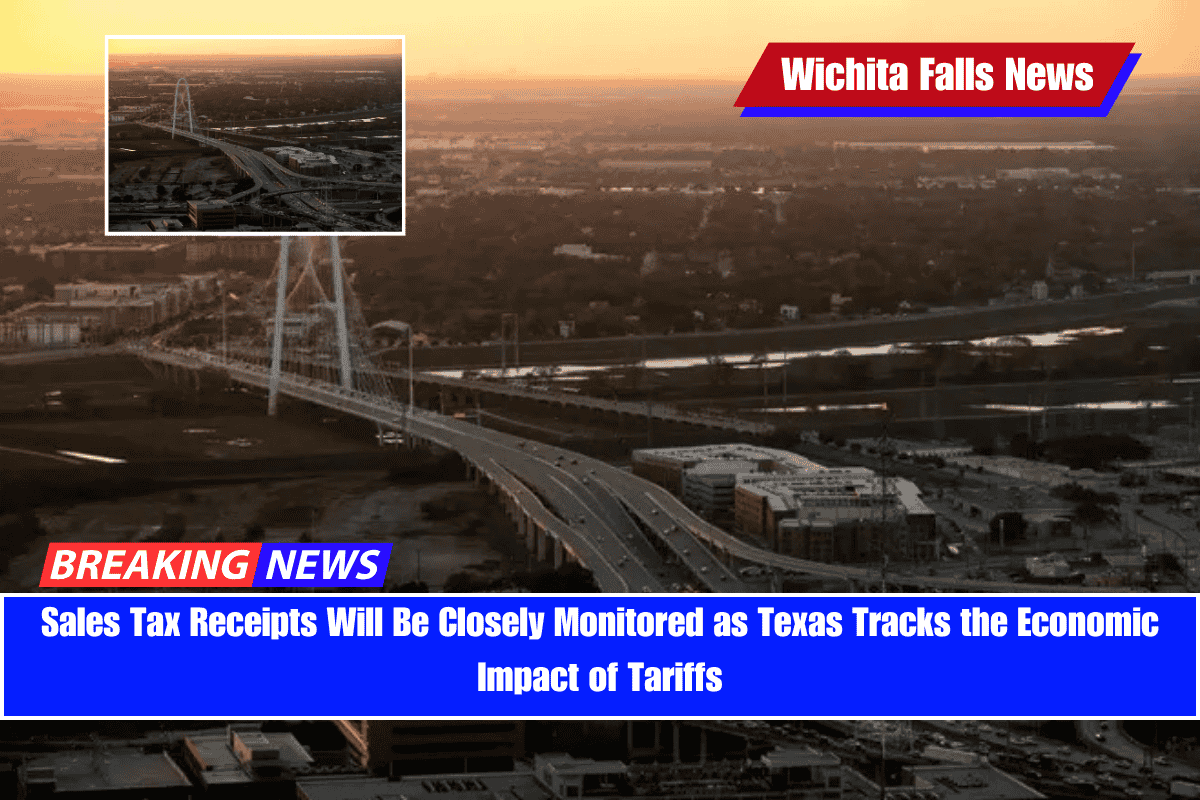As tariffs threaten to disrupt the U.S. economy, Texas Comptroller Glenn Hegar is closely watching sales tax revenue and oil prices. While the state’s economy has shown some softening, Hegar’s office remains cautious in making major updates to their forecast.
Despite the challenges, Texas is still seeing strong labor market reports and a $24 billion surplus, according to Hegar’s office. However, the imposition of new tariffs on imported products could cause economic disruptions in the state, which heavily depends on international trade.
Tariffs and Their Impact on Texas Economy
The announcement of new tariffs, including a 10% tariff on imports from other countries, has raised concerns among the state’s business leaders. Hegar acknowledged that while it’s too early to fully understand the impact of these tariffs, Texas’ position as the top state for international trade makes it particularly sensitive to such disruptions.
Texas’ largest trading partners — Mexico and Canada — have already warned of retaliatory tariffs. Hegar and other business leaders, such as Glenn Hamer from the Texas Association of Business, fear that the tariffs could:
- Disrupt supply chains
- Erode investor confidence
- Increase consumer costs
Hegar emphasized that while there has been some decline in sales tax revenue, the state’s economic forecast already anticipates a slowdown, so it is not yet clear how much the tariffs will affect Texas’ financial outlook.
Legislative Response to Tariffs
Despite the uncertainty around the tariffs, Texas lawmakers are still moving forward with budget plans. The Legislative Budget Board has set the state’s budget at $336 billion, with a $24 billion surplus and a $28.5 billion rainy day fund. Lt. Gov. Dan Patrick has praised the Senate’s conservative budget approach, which focuses on property tax cuts, teacher pay raises, and public education.
However, some lawmakers, like Rep. Gene Wu, worry that the tariffs could have serious consequences for Texas. Wu pointed out that Texas’ main trading partners — Mexico, Canada, and China — could retaliate, which would lead to economic challenges for the state.
Uncertainty in the Budget and Potential Adjustments
The uncertainty surrounding the tariffs makes it difficult to update revenue forecasts. While the state’s $24 billion surplus provides a buffer, it’s not clear how much the tariffs will impact future revenue.
Mark Jones, a political expert at Rice University, stated that it’s hard to adjust the state’s revenue outlook with budget negotiations already underway. Joshua Blank from the Texas Politics Project believes Republican lawmakers may avoid publicly criticizing the president’s trade policies for fear of political backlash.
Despite the uncertainty, Texas officials have the authority to adjust spending throughout the year if revenue projections change. Hegar is expected to issue a second revenue update later in the year, but for now, his office remains cautious about making any major adjustments.










Leave a Reply